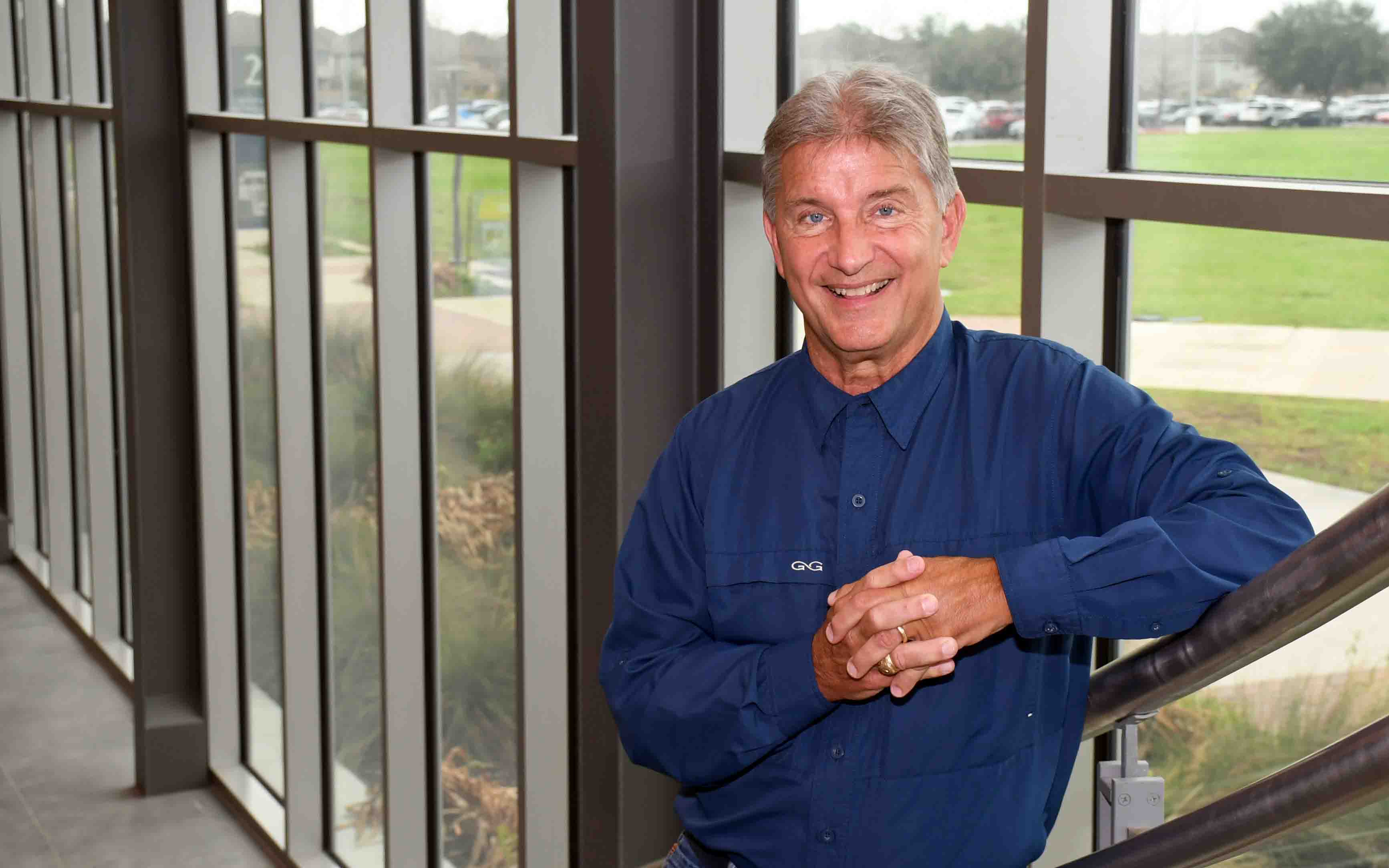Lifelong learner returns to classroom after 40 years

Since retiring eight years ago, Gene Fisseler has relished traveling and volunteering with conservation and environmental nonprofit organizations. He recently added college to his list of retirement adventures.
A native of Waco, Texas, Fisseler has resided in Houston since 1979. He earned his bachelor’s and master’s degrees in engineering from Texas A&M and the University of Houston and enjoyed a 40-year career in the electric power industry, working for Houston Lighting & Power, Reliant Energy, and NRG. His career encompassed engineering, environmental work, public relations, community affairs, and government relations.
Fisseler always thought of San Jacinto College as just another community college until one of San Jac’s State of the College events inspired a new perspective.
“I had no idea there was something like 30,000 students, five campuses, more than 200 degrees and certifications, and the recurring Aspen Award consideration,” he said. “Following that luncheon, I decided I wanted to contribute to San Jac’s ongoing success.”
What better way to know the students’ world than to be a student myself. So I enrolled. Now I’m an ID card-carrying Raven!
The Raven Life
Fisseler asked friends and colleagues for recommendations, seeking a professor known for being interesting, engaging, and knowledgeable. The suggestions led him toward the sciences, and he registered for Malcolm Sadler’s physical geology course at the Central Campus.
Sadler considers Fisseler the “prototype student” — one who studies, asks questions, is always on time for lectures and labs, and is alert and studious.
“Gene was lost at first, learning the new technology, but eventually figured it out,” Sadler said. “I’m sure he had some trepidation regarding how to connect with his peers, many of whom are much younger than he. But Gene loves to connect with others, and he said everyone has been kind and gracious.”
Numerous staff and students helped Fisseler find his way around campus.
“They were polite, helpful, and extremely generous with their time,” he said. “I imagine they looked at me and figured someone my age needed all the help they could offer. Most ended our encounter by asking what class I was teaching. I got a good laugh at their expressions when I told them I was a first-year student. I’m probably 50 years older than most of my classmates.”
Fisseler is just like any other student but with one unique characteristic.
“Gene has real-world experience, and that’s what sets him apart from his classmates,” Sadler said. “In fact, geology can really only be experienced through travel, and Gene has been some places! Many of the other students haven’t even left Houston.”
The two have managed to learn from each other.
“He has suggested several geologically oriented books to read,” Sadler said. “So Gene stays up to date on many of the topics that I’m actually teaching currently.”
Future plans
Fisseler’s focus remains his activities as a Texas master naturalist.
He works with the Armand Bayou Nature Center Foundation, Exploration Green Conservancy, Galveston Bay Dolphin Research Project, Galveston Bay Foundation, and Port Houston Commission Community Advisory Council, all in addition to serving as a board member with the San Jacinto College Foundation.
As for college, Fisseler’s San Jac experience has been “extremely positive,” and he’s considering auditing Sadler’s historical geology class next.
About San Jacinto College Surrounded by monuments of history, evolving industries, maritime enterprises of today,
and the space age of tomorrow, San Jacinto College has served the people of East Harris
County, Texas, since 1961. The College is ranked second in the nation among more than
1,100 community colleges, as designated by the Aspen Institute and was named an Achieving
the Dream Leader College of Distinction in 2020. As a Hispanic-Serving Institution
that spans five campuses, plus an online college, San Jacinto College serves approximately
45,000 credit and non-credit students annually. It offers more than 200 degrees and
certificates across eight major areas of study that put students on a path to transfer
to four-year institutions or enter the workforce. The College is fiscally sound, holding
bond ratings of AA+ by Standard & Poor’s and Aa2 by Moody’s.
